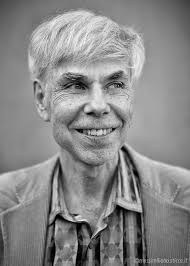

Hofstadter has a lifelong love for languages, and has written a tome about translation, analogies, constraints, and creativity (Le Ton beau de Marot: In Praise of the Music of Language), plus translated many poems and two novels into English - one novel in verse (Pushkin's Eugene Onegin) and one in prose (Françoise Sagan's La Chamade, anagrammatically titled in English That Mad Ache). Currently his most active goal is to reveal how analogy-making lies at the base of all human thought (see "Analogy as the Core of Cognition" and hopefully, in a couple of years, Toward the Roots of Thought).

Hofstadter's interests concerning the human mind are varied, ranging from errors as a window on the mind (see "To Err is Human To Study Error-making is Cognitive Science") to the mechanisms of creativity to the nature of consciousness (see I Am a Strange Loop and The Mind's I). Progress has been made, but there is still far to go (see Fluid Concepts & Creative Analogies). For roughly 25 years, the FARGonauts have been making computational models of our human concepts and categories, the premise being that if and when these mini-concepts achieve the holy grail of "fluidity", creative analogy-making will be an outcome. Douglas Hofstadter is College of Arts and Sciences Distinguished Professor of Cognitive Science and Comparative Literature, where he also directs the Fluid Analogies Research Group, nicknamed "FARG", at the Center for Research on Concepts and Cognition.


 0 kommentar(er)
0 kommentar(er)
